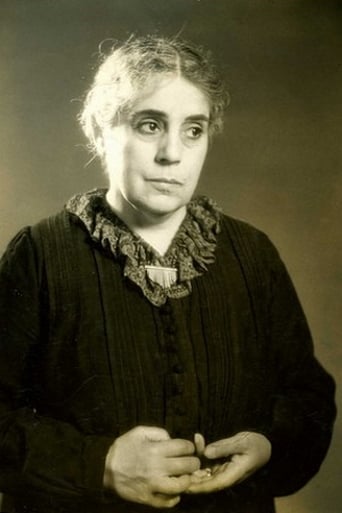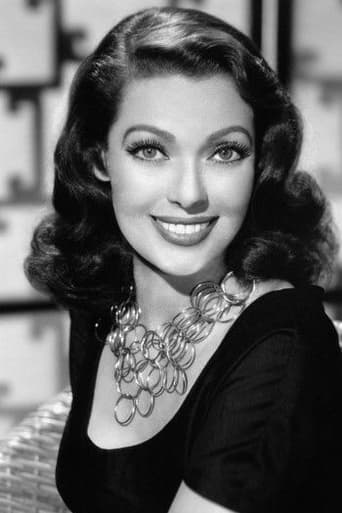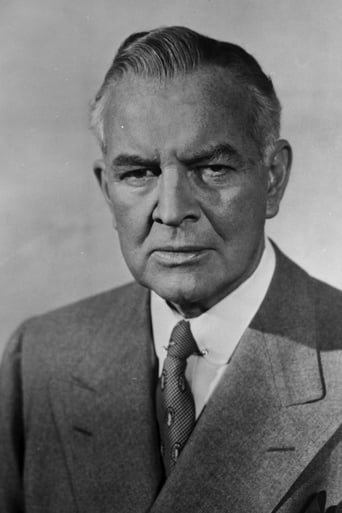Smartorhypo
Highly Overrated But Still Good
BoardChiri
Bad Acting and worse Bad Screenplay
Mandeep Tyson
The acting in this movie is really good.
Mathilde the Guild
Although I seem to have had higher expectations than I thought, the movie is super entertaining.
gerrythree
Between the 1930 release of this short and 1934, most of the talent appearing or mentioned in this short were gone from the Warners lot. Grant Withers divorced Loretta Young and soon after worked elsewhere. Loretta stuck around to 1934 before leaving. Richard Barthelmess, who sent a telegram that he was on location(Warners was great at creating telegrams) left in 1934 when Warners did not renew his contract. Marilyn Miller did not last that long before departing. George Arliss also sent a telegram in lieu of making an appearance. Arliss's last movie for Warners was 1933's Voltaire, directed by John Adolfi, who also directed this short. Adolfi's career and everything else ended in 1933, death from a cerebral hemorrhage. In Arliss's next movie after Voltaire, House of Rothschild, his co-star was Loretta Young and the production boss was Darryl Zanuck, head of 20th Century Pictures. Before he quit Warners in 1933, Zanuck was that studio's production chief.Samuel Marx said that when Louis B. Mayer ran MGM, he would tell the MGM staff that as long as they did their job well, they had a job for life. And, to a large extent until he was ousted in 1951, Mayer kept his word. The situation at Warners was different, run like a sweatshop, actors constantly put on suspension for refusing to work in pictures they thought would wreck their careers and Jack Warner pinching pennies everywhere except at the racetrack. This short is evidence of the great turnover of talent at Warners. Warners made great pre-code movies in the early thirties, but it was not a nice place to work at, not having much job security. And what happened to Alice White, she starred in 1930's The Widow From Chicago with Edward G. Robinson, who was at the dinner.
Leslie Howard Adams
This 1930 short proclaimed to be Warner's Silver Jubilee (25 years-old, and going strong.) And, indeed, it was. The brothers entered the business in 1906, as theatre exhibitors in a converted store in New Castle, Pa. Okay, close enough. They begun making films in 1912, but their first full-blown movie, "My Four Years in Germany", appeared in 1918. They acquired the 40-acre Beesmyer Ranch, on Sunset Boulevard, in 1919.Their filing of the certificate of incorporation in Delaware on April 4, 1923 (remember this date)signified the legal birth of the company. They acquired the Vitagraph Studio in Brooklyn in 1925, and First National in 1927. (Those who are fond of sticking Vitagraph, Vitaphone and First National on all Warner Bros. films might want to remember the 1925 and 1927 dates.) And, then, 43 years after their 25th birthday party in 1930 ( listed on this page and can be seen on TCM from time-to-time), Warners tossed themselves a 50th Birthday Anniversary, which, according to most math standards, actually occurred in their 67th year.Hocus-Pocus and right before our eyes, Warners de-aged themselves seventeen years. And set a bad precedent in doing so, as the current generation in the industry thinks such matters as public records should not be made public and thereby keep them from getting calls to play teen-agers when they are pushing 35.At least, Warners had 1923 as their incorporation birth-year to back up their claim of only being fifty in 1973. That might be the solution for actors to want to shave years...get incorporated...and then you can play teen-agers when you are only two-or-three years old or, at the worst, get turned down for being too young.
MartinHafer
I am not a huge fan of short films from the 20s and 30s unless they are comedies. However, when I saw this on TCM, I still watched it because I was excited about seeing a film that was essentially a commercial extolling the wonders of Warner Brothers. That's because I wanted to see their stars and see how they looked when they were young. Well, unfortunately, I noticed that in 1930, they had very few stars anyone would recognize today. I am really good at film trivia and there were several I simply didn't recognize and many who I did recognize but knew them only as small-time actors. Plus, three of their biggest stars weren't in this short and they simply showed photos of them and inserted fake letters from them to the audience. Not having John Barrymore, George Arliss and Richard Barthelmess was a real disappointment and the audience had to be content to watch a few small-time actors (with the exceptions of Loretta Young, Walter Huston and a couple lesser stars, who were in the film). The film's structure was also something I myself didn't like--having the film star a small child called "Miss Vitaphone". Yes, I understood the significance--Vitaphone was the new unit from Warners responsible for sound pictures. But, I'm not much of a fan of precocious children.All-in-all, this is a curio and that is all--and not a very interesting one at that.
boblipton
This short subject, nominally in celebration of Warner Brothers' silver jubilee -- the only thing I can think of is that they may have opened their first theater in 1905; they didn't go into production for another dozen years -- is an excellent primer for putting faces to names. If you are a fan of old movies, you have seen these actors, but you may not be able to link the faces with the names.Besides the players, various composers and lyricists are shown. It is amusing, given what happened later, to see Richard Rogers and Oscar Hammerstein II -- but they are seated next to, respectively, Lorenz Hart and Sigmund Romberg.This is not, otherwise, an interesting short subject --the moviegoer was intended to be overwhelmed by the sight of so much talent and probably was. Now it is simply a historical artifact.




